Premiere of the play "Sariya" about the wife of the prominent Abkhazian politician Nestor Lakoba in the Abkhazian State Theater named after Samson Chanba. WAC correspondent visited the press screening of a new production directed by Madina Argun.
Amra Amichba
A press screening for media representatives was held in the Samson Chanda Abkhazian State Theater on the eve of the premiere of the play "Sariya", scheduled for February 24 and 25. The performance is dedicated to the legendary woman in Abkhazia - the wife of Nestor Lakoba, a statesman of the Soviet era.
Sariya Lakoba is known, first of all, for her fortitude in the NKVD prison (People's Commissariat of Internal Affairs - the central body of the state administration of the USSR for ensuring state security - ed.), where she was forced to discredit her husband, who was declared an "enemy of the people." The arrests of Nestor Lakoba's relatives began after his murder, Sariya Lakoba was arrested on August 17, 1937. According to witnesses, Sariya courageously endured all the torture and abuse for two years and died at the age of 35 in a prison hospital in Georgia. The place of her burial is unknown.
The performance was staged based on the play by Zarina Kanukova, a poet, prose writer, playwright, editor-in-chief of the Goryanka newspaper of the Kabardino-Balkarian Republic (since 2018, Kanukova has been organizing the annual Abkhaz-Adyg literary festival "Rhymes on the Ritsa" in Abkhazia - ed.). The director of the play is Madina Argun. The production designer of the performance is Nodar Tsvizhba.
The screening begins and actress Khibla Mukba is the first to take the stage. Her role is to encourage Sariya to tell the story of how a woman endured everything and did not break. The heroine of Khibla is every spectator who came to the theater to learn the story of Sariya Lakoba.
In general, the story in the play is non-linear: events take place in the reverse order, sometimes with flashbacks. The working title of the performance was "The Mind Games of Sariya Lakoba", the main idea was to visualize the memories, fantasies, fears of the heroine. In a way, the performance turned out to be psychedelic.
The role of Sariya in the performance of the same name is played by Amra Nachkebiya, a graduate of the directing department of the All-Russian State University of Cinematography (she studied in Alexey Uchitel’s studio - ed.). This is her stage debut.
Speaking about her work in the production, the young actress notes that from the very beginning she was comfortable working with the director, there were no contradictions.
"I trusted her and her vision of my role. Madina Argun is a very tactful director, she pulls the necessary emotions out of you very slowly and painlessly for you as a person. She allows you to open up as an actor. We rehearsed for almost a year, and in recent months I got the feeling that it's not me getting used to the role, but my heroine getting used to me. After the runs and rehearsals, there was such emotional exhaustion that I wanted to cry. There are very few scenes where Sariya is cheerful, young, more emphasis is placed on the emotional state in prison. I would advise the audience to watch the performance not only to know the history, as everyone would say, but also to understand for themselves how devoted and pure the human soul can be," concluded Amra Nachkebiya.
The director of the play, Madina Argun, did not give interviews to journalists during the whole time of preparation for the performance, rehearsals - she adhered to the same tactics at the press screening. This is a certain directorial move, so that everyone can find the meanings inherent in the production.
There are very many of these meanings in the play. An important trump card of the director was the careful study of the material so that it was understandable not only in Abkhazia, but also outside the Republic. On the whole, in order to count all the meanings, one needs to know the history of Abkhazia and the history of the Lakoba family, to be fairly well versed in world literature and art.
"I liked that the director has direct references to history, for example, the appearance of a fish on stage - you immediately understand that this is about the poisoning of Nestor Lakoba, and there are places where the director plays with the audience so that he thinks, reflects and himself comes to understanding. You cannot switch off from the process, your brain works. I wonder how much Madina passed through herself in order to lay all these meanings! I would very much like the audience to understand this as much as possible," said Geta Ardzinba, head of the Women’s Councils of the WAC, who also came to the show.
Indeed, in the performance nothing appears with no reason. Load suspension bars descending from above, with a long row of clothes on hangers, shoes scattered around the stage ... those who know history will remember that during executions people were stripped naked, and then the bodies were thrown into the pits. The lights at the back of the stage are dimmed, and you literally see, without actually seeing, how the dead fall into one common grave. The famous photograph of Sariya with asters comes to life on the stage, with only difference that the heroine is holding not real flowers, but paper ones.
A well-read spectator during the performance will hear quotes from the works of Pushkin, Valery Bryusov, even from Shakespeare (in the original language) in the speech of the heroes, recognize the lines of our contemporary Alexander Solzhenitsyn. There are also allusions in the production to the dialogue between Socrates and Creon, when Socrates was in prison, to Michelangelo's fresco "The Last Judgment" from the Sistine Chapel in the Vatican. At the same time, the production itself is not the author's fantasy, but the director's language, with which Madina Argun conveys real events.
The play reanimated the scene of the 1937 trial of Nestor Lakoba's associates. Then, from October 30 to November 3, in the building of the Abkhazian Drama Theater there was a trial of "13 Lakobovites", a crowded hall shouted "Execution!" After the prosecutor's speech, 13 people were taken to the backyard of the theater and shot. This episode was transferred to the stage, the actor-prosecutor Said Lazba read out an excerpt from the speech, and then the name of each shot is heard. This is another emotionally heavy moment in the play. The refrain is the word of the NKVD officer with a whip: "Sign!", demanding from Sariya to slander her husband in exchange for saving her son. However, the woman does not give up.
"Sariya was not only a courageous woman, but also a smart one. She thought about how her family would remain in the history - it depended on her. Sariya understood that no one from her family would be spared, even if she signed a slander against her husband. She remains true to herself and her love in such circumstances. This goes beyond the story of one repressed woman. The performance is like a hymn to all women, all the wives of the repressed who went through Soviet camps - both those who were killed and those who remained alive," says theater critic Svetlana Korsaya.
She called "a discovery for the audience" the work of the title role performer Amra Nachkebia.
"Her VGIK school revealed her talent on the theater stage. Everything is natural and conscious, she lived the life of this extraordinary, strong, solid woman, at the same time weak and vulnerable. There was everything - love and tenderness, hatred and fortitude. She was all focused on life, on being and loving," said Svetlana Korsaya.
The leitmotif of the whole performance in different arrangements is the Cloris aria performed by the People's Artist of Abkhazia and Russia Khibla Gerzmava. The rest of the musical arrangement of the performance is the work of Timur Agrba and Timur Narmaniya. There is a composition that was specially written for the performance by Timur Agrba. The song "Анцэа рашэа" ("Song of the Gods" - ed.) from the WAC project "Amazara" is also featured in the play.
At the end of the performance, already from behind the curtain, the main character comes out and reads the epilogue from the poem "Requiem" by Anna Akhmatova. The words of the poetess of the Silver Age from the lips of Amra Nachkebiya - like Sariya herself - sound like a reproach to those who have not yet erected a monument to a courageous woman. Spectators leave the hall under a strong impression.
"The new performance at the Abkhazian theater is the first step towards perpetuating the memory of Sariya Lakoba. For Abkhazians, it is very important to perpetuate the memory of such a woman - a patriot, a devoted wife, mother, daughter," said one of the spectators of the press screening, journalist Anzhela Kuchuberiya.
The premiere screenings of the "Sariya" play at the Abkhazian Drama Theater will be held on February 24 and 25. The WAC is an information partner of the premiere screenings of the play
.

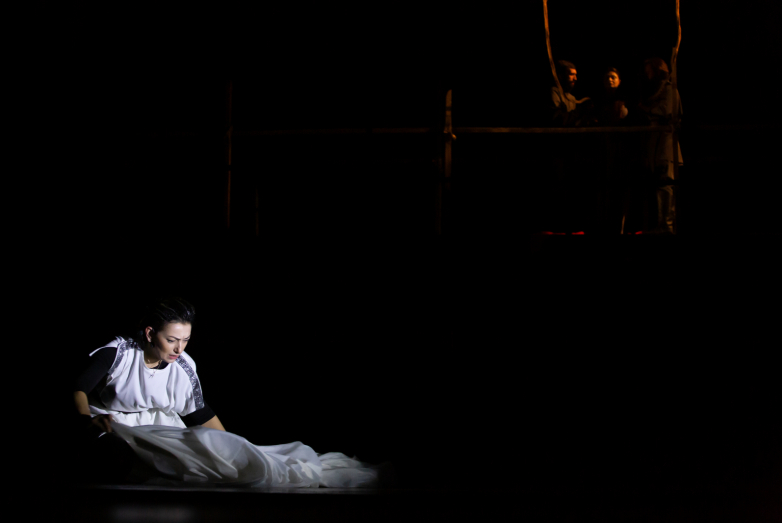
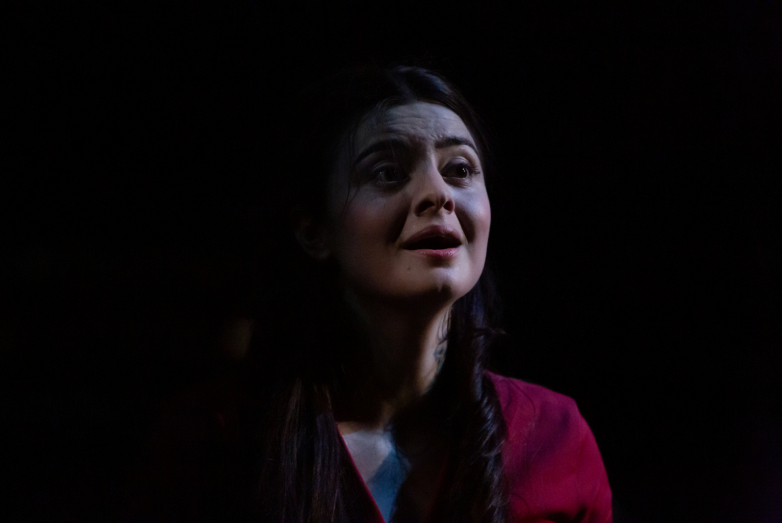
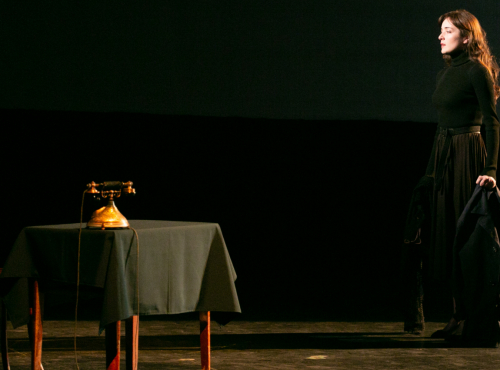
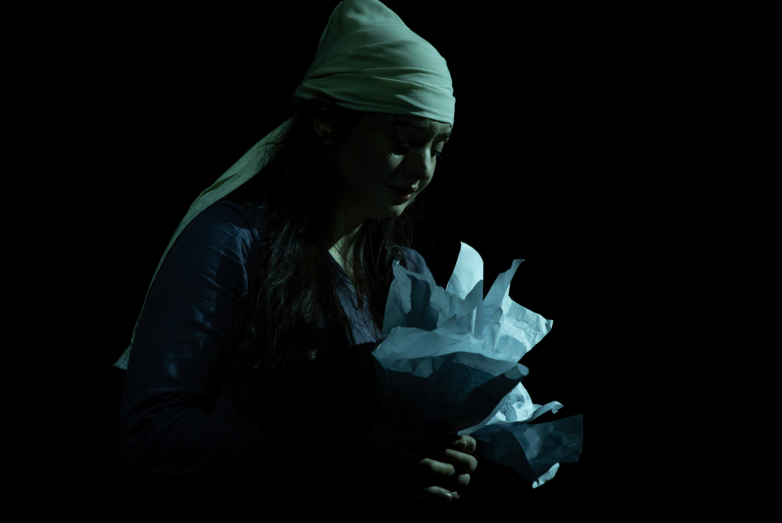
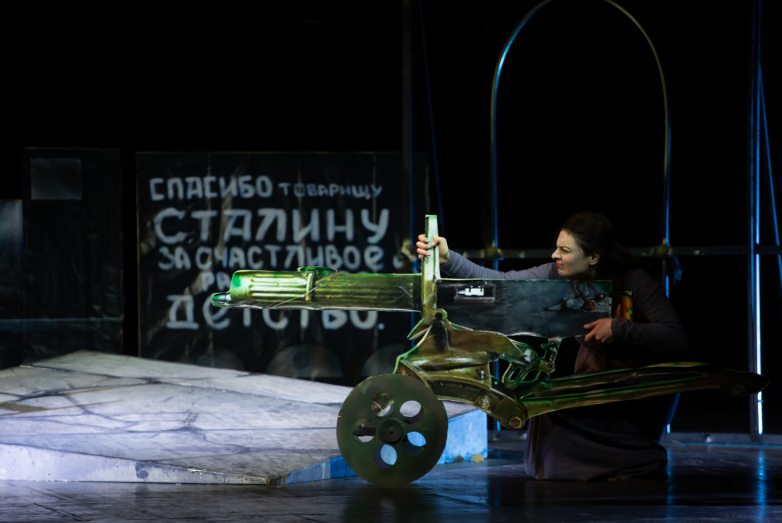
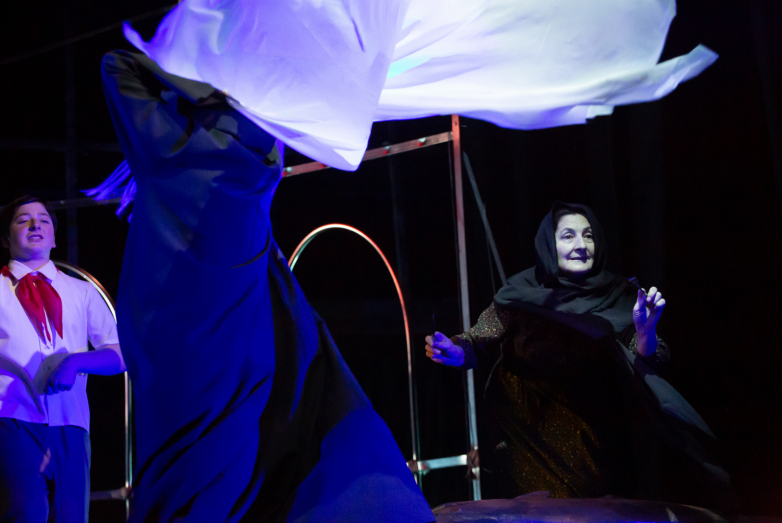
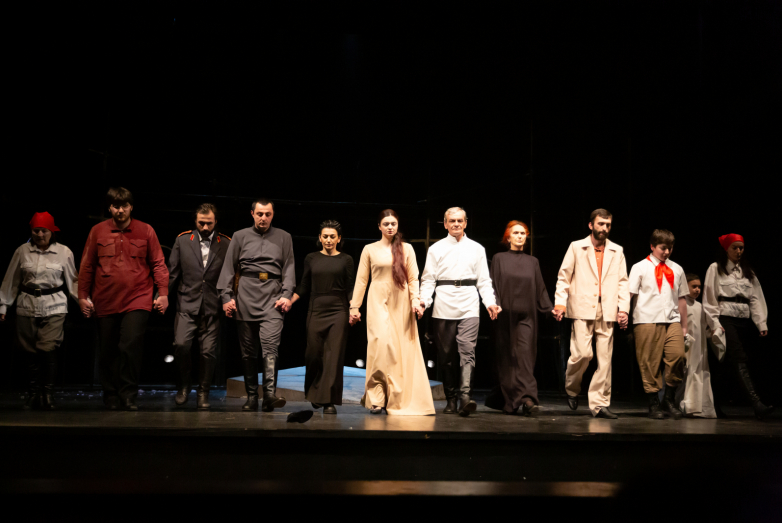
to login or register.